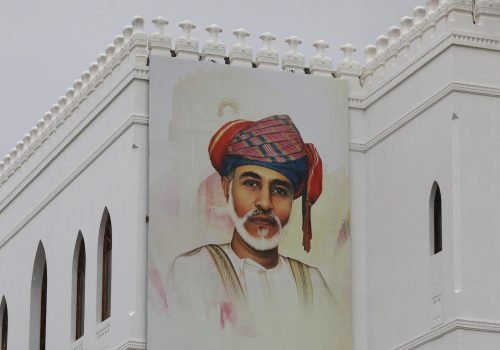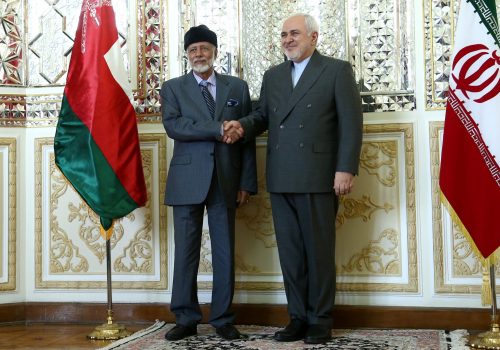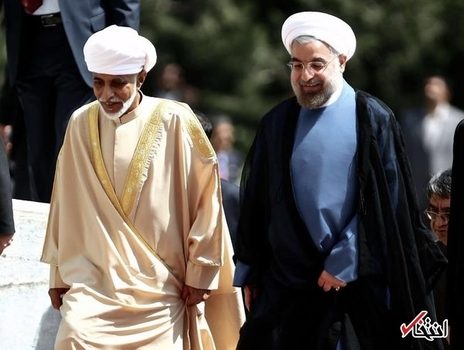What comes next for Oman?
For years the international community voiced concerns about the “baroque” succession plan that Oman has established in its basic law. Sultan Qaboos bin Said had no heir and had chosen not to publicly name a successor during his lifetime. This concern was time and time again brought up as a source of anxiety for investors and other stakeholders. While Omanis continued assuring everyone that no power vacuum was likely to happen, the uncertainty seemed too big to ignore.
On January 10, Muscat woke up to the devastating news that they had lost their beloved leader. As the day went on, the world watched as Omanis laid to rest a leader who built Oman to what it is today. The nation grieved as Sultan Qaboos—or as my generation endearingly called him Baba Qaboos—was buried by his countrymen in a simple grave. On the same day, Oman showed not just the region but the world transparency unseen before. In a matter of four hours, the late ruler was buried while another was appointed in a smooth and peaceful transition without strife or conflict.
The transition and the choice of sultan sent a message to the world what Oman sees for its future and for the region. “[We should] ask ourselves, how we want to see ourselves in the Middle East in the coming fifty to sixty years… we should think about the future,” Oman’s veteran Foreign Minister Yusuf bin Alawi said to applause during a Davos session on the geopolitical outlook of the Middle East. Omanis have a reputation in the region of being quiet. As an Omani who lives abroad, I have had many Arabs tell me how I’m the only Omani they have met. Some would point out why we seem to not partake in issues concerning the Middle East. Some would even go as far as accusing Muscat of fraternizing with the enemy, given our stance on the Palestinian-Israeli conflict. My answer to them always goes back to our independent foreign policy: friends to all, enemy to none.
We are a peaceful nation that chooses not to meddle in other countries’ affairs. We opt for peace rather than war as a solution. This was even more evident with the choice of the current successor to Sultan Qaboos. There was a message in picking Sultan Haitham bin Tariq to continue leading Oman. He was a first-class career diplomat, a former secretary-general to the Ministry of Foreign Affairs, and, until his accession, the minister of culture and heritage. Sultan Haitham’s experience made him the perfect fit to continue Oman’s foreign policy. But more than that, it was a message to the Omani people and the world that we see a future of peace and prosperity for all.
So, what comes next for Oman? His Excellency Ali Al Sunaidi, Oman’s Minister of Commerce and Industry’s statement during the delegation’s first appearance under new leadership in Davos was clear. Oman’s foreign policy will remain consistent and Muscat will continue the work of Sultan Qaboos, while maintaining its relationships in the world.
Interestingly, the speedy process of appointing the new sultan also highlights what we have all been speaking about behind closed doors: the interests of our neighbors and regional stakeholders. As the realists that we are, Omanis were well aware that the Strait of Hormuz would be the prized possession our neighbors would seek if Oman loses its stature as a peacemaking mediator. With heightened security concerns, especially in January during heightened tensions between the United States and Iran, Muscat was in an even more delicate situation. But with this awareness came the realization of acting swiftly and calculating to keep those interests at bay, and to ensure Oman will continue navigating the region through inclusive strategies that embrace neighboring differences while continuously encouraging and promoting peaceful co-existence.
The main challenge for Sultan Haitham, however, will be domestic issues, especially policies to reinvigorate the sluggish economic growth, enable more private sector participation, and tackle the high unemployment rate by empowering Omani youth, who make up more than half of the 4.6 million population. As an Omani millennial who was actively part of the National Program for Enhancing Economic Diversification (Tanfeedh), I know that the youth have heard a lot about these plans, yet it seems the government’s willingness to allow our generation to lead the strategy for the future remains lacking. Our current cabinet does not consist of anyone under the age of 35, and the majority have occupied their seats for a decade—if not more. Economic diversification is needed, but we also need to diversify those we entrust with implementing these visions and strategies. With more countries entrusting their leadership in the hands of younger generations, Muscat needs to send a message to its youth that it has confidence in them by providing a seat at the decision-making table, which would demonstrate belief in their ability to lead the future of their homeland.
During his first speech to the nation after the 40-day mourning period in February, Sultan Haitham addressed the nation and hit on those exact points. He appealed to the nation to trust his new leadership as Oman forges a new path of a regenerated renaissance. Acknowledging his intention to restructure the administrative apparatus, and holding those in charge accountable, his speech highlighted the importance of younger Omanis by saying: “Youth are our nation’s wealth, they are our present and future and we are keen and dedicated to listening to them.” Sultan Haitham may have big shoes to fill, but Omanis are confident that his experience as the chair of Oman’s Vision 2040 makes him fit for the task at hand with hopes of seeing more young blood in leadership positions in government.
While Omanis, young and old, are still dealing with the grief of Sultan Qaboos’ loss, we remain proud of how we handle our future. His legacy will continue as we embark on a new chapter in our history: an outward-looking nation that does not needlessly provoke others or jeopardize stability.
Rumaitha Al Busaidi is an Atlantic Council Millennium Fellow. She is also an Omani marine scientist, a multi-award-winning radio presenter, and former vice chair of food manufacturing for the Omani National Program for Enhancing Economic Diversification (Tanfeedh). Follow her on Twitter: @RumaithaBusaidi.
Image: Sultan Haitham bin Tariq al-Said is sworn in before the royal family council in Muscat (Reuters)


